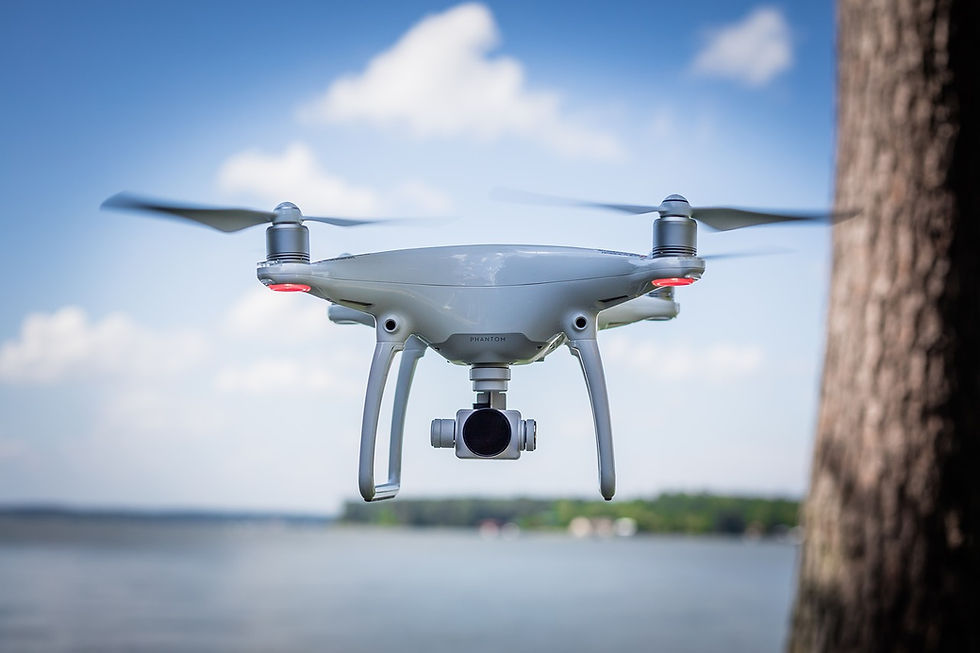Federal privacy laws and spying drones: are you protected?
- Abby Sampson
- May 19, 2017
- 3 min read

Unlike a cellphone camera, a drone can fly overhead without a person noticing, peer directly into someone’s window or film private property from above. The basic function of most drones is for aerial videography and to capture images.
In March, new legislation was introduced to put in place more privacy protections against drones. The Drone Aircraft Privacy and Transparency Act was also introduced in the House with the support of Rep. Peter Welch, D-Vt. While there are currently no laws to protect individuals against people stalking or spying on them in their homes, there are no federal laws in place that would protect individuals from being spied on specifically by a drone.
“What happens if there are drones that are gathering, through facial recognition, who is shopping on Main Street and selling that to advertisers?” asked Sen. Markey at a U.S. Senate hearing on the future of drones in the U.S.
“What about the drone that’s just taking a picture of every license plate at a health clinic and then selling that information to an insurance company because they know exactly the disease that is being treated at that clinic that it specializes in?” Sen. Markey continued.
In response to Sen. Markey’s concerns, Earl Lawrence, the director of the Office of Unmanned Aircraft Systems at the Federal Aviation Administration, pointed to an advisory committee assembled by the FAA, made up largely of representatives from the drone industry, that has been working to help shape its drone policy. He did not, however, have specific actions to point to about how the FAA is addressing drone privacy concerns.
In 2016, the National Telecommunications and Information Administration, an agency that advises the president on tech issues, released a set of best practices for respecting people’s privacy when flying a drone. The guidelines recommend operators notify people when flying a drone that is collecting personally identifiable data nearby. NTIA also suggests informing people how the data being collected will be used.
All of these guidelines, however, are voluntary.
One of the experts called on to provide testimony at the March Senate hearing, John Villasenor, a professor of engineering and public policy at the University of California Los Angeles, testified that existing privacy laws are good enough.
“I think it is premature to enact broad new federal legislation specifically directed to unmanned aircraft privacy,” Villasenor shared in his testimony. He warned that new drone privacy laws may inadvertently violate the First Amendment rights of drone operators who are flying and filming responsibly and that there’s little evidence to prove that existing federal privacy laws have failed with respect to drones.
Senator Markey’s legislation aims to create privacy protections and data reduction requirements about information a drone collects, disclosure provisions for when data collection is happening and warrant requirements for law enforcement.
Another topic that was discussed extensively at the hearing were concerns with drones flying too close to manned aircraft. The FAA released a report in February 2017 counting 1,274 possible drone sightings reported from pilots, air traffic control, law enforcement and members of the public between February and September of last year. That’s up from 874 during the same period in 2015.
The FAA says it has yet to count any collisions between a manned airplane and a drone, despite the fact that over 670,000 drones have been registered since the FAA opened its registration system at the end of 2015.
If you feel that you have been the victim of a spying case, contact the law office of Sampson and Bové, LLC today for a free consultation.
*Original article information curated from recode.net.


































